University: Set up societies for student carers, graduate says
- Published
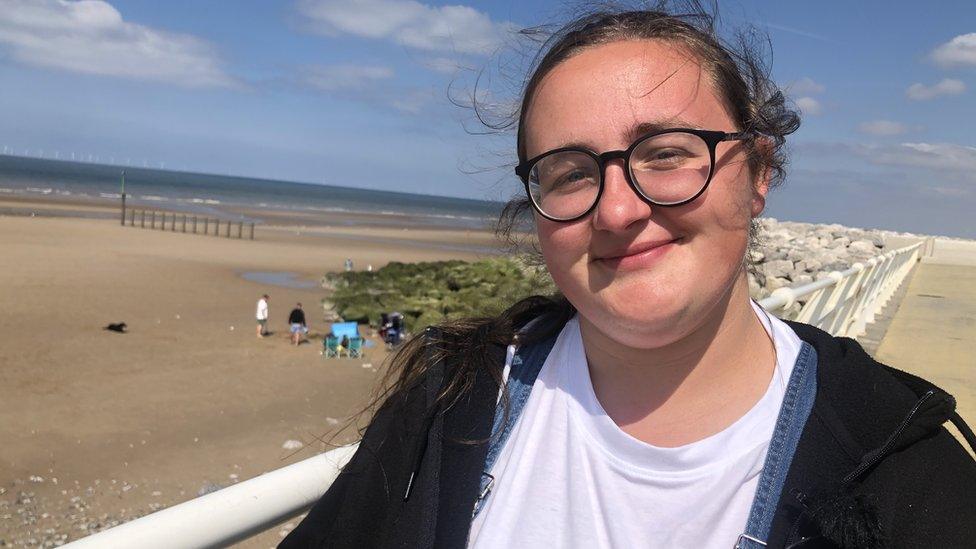
Emma graduated from the University of Gloucestershire
University societies should be set up for students with caring responsibilities so they feel less alone, a graduate has said.
Emma Walker from Abergele, Conwy, recently graduated from University of Gloucestershire in Cheltenham.
She said often people mistake caring as "doing chores around the house" when it is taking care of someone else.
A group that represents universities across Wales says student carers are offered pastoral and financial aid.
"Maybe there could be societies made up within universities and within student unions specifically for carers or carers with disabilities or all of them put together.
"Then maybe someone like me would know I'm not alone in this university."
Her mental health suffered at university, in part due to homesickness.
"I got a load of support from the new friends that I made and I went to a group on Monday evenings called Cake and Chat.
"The university had employed a chaplain and he ran it and he was lovely. You could have meetings with him and you could chat to him about anything."
The 24-year-old from Abergele, Conwy, studied Early Childhood Studies.
She cares for her mother who has multiple sclerosis. Emma has epilepsy, autism, anxiety and depression.
"While I was at uni I was diagnosed with complex PTSD," she said.
"I had support from the DSA - disabled students allowance - and they were able to get me printers and laptops and stuff that I could use, and software so I could record lectures.
"But the process was pretty easy if I needed to go home at any point because of an emergency. I would just need to make sure that I caught up on any work and they were quite understanding."
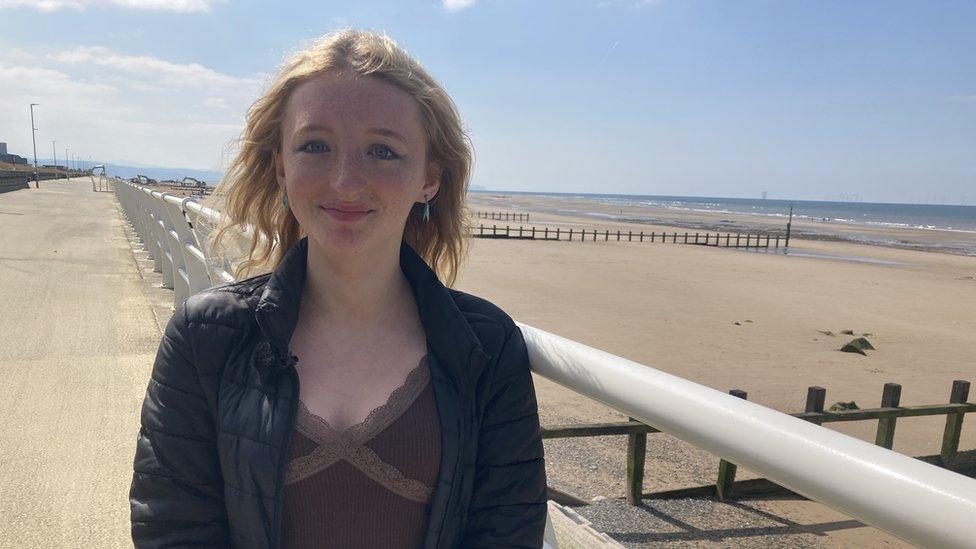
Fayeth Jones from Denbighshire wants to move to London to study psychology
Students starting their courses in 2023 were the first to have the option of noting their status as carers on their UCAS application.
Early findings from UCAS suggest that carers going to university are 73% more likely to have mental health issues than the general student population.
They're 67% more likely to have physical impairment or mobility issues.
Carers also tend to choose universities closer to home and are less likely to apply to elite institutions.
Fayeth Jones, 17, from Rhyl, Denbighshire will be applying to study psychology in London.
She looks after her mum, who has epilepsy, and her sister, who has leukaemia. Fayeth also has epilepsy.
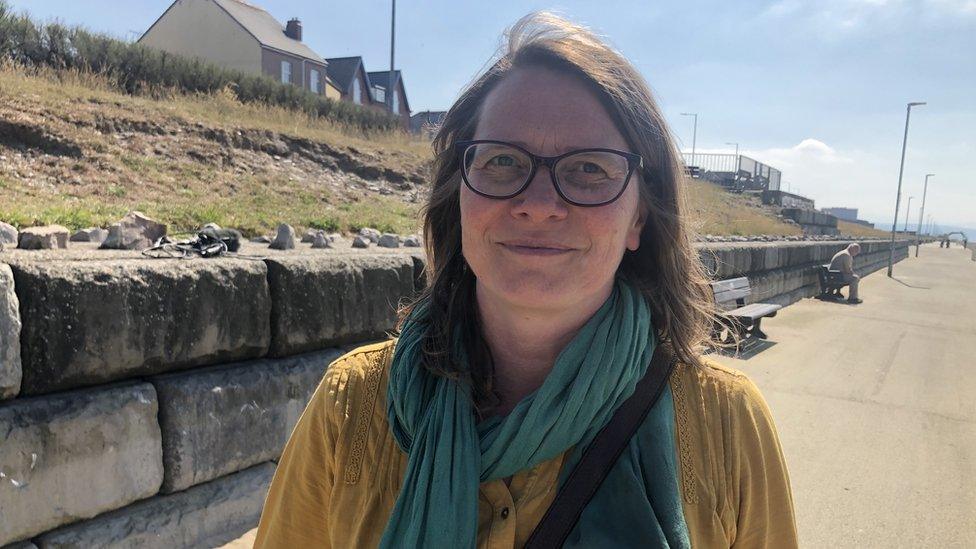
Sally believes education providers need to "think about young people holistically"
"I'm looking forward to having a break away from everything, but also worried about being that far away," she said.
"Sometimes I do think that it would be better for me to stay local, just get a job rather than going to uni and doing what I want to do.
"But I've had certain people around me who have told me that I should go for it, no matter what."
Sally Duckers, from the charity, Credu Cymru has welcomed the new tick box on the UCAS form.
"We've seen some really good practice in colleges we work around, where they've really recognised young carers and put just a little bit of additional support in place.
"It's not just about them getting to college or university, but staying there."
Sally believes education providers need to take a holistic approach.
"In our own project in north Wales - in Wrexham, Conwy and Denbighshire - we finish supporting young people when they turn 19, which means they'd naturally transfer to adult services.
"So if they're then at university, it would be good if there was a way of connecting with the local service."
She said an in-house service at universities to provide this link would help to create a "seamless transition".

Bangor Uni offers a £1,000 bursary for student carers
Wendy Williams from Bangor University, where carers are offered a £1,000 bursary, says the UCAS data is "extremely useful" and will enable them to proactively show the support they can offer to these students.
But she added that "our end goal is to see them graduating".
Fayeth plans to tick the carers box on the UCAS form.
"It makes you a lot more confident that if something were to go wrong, then they'd be able to support me in still keeping up with the work I need to do while also being able to fulfil my normal caring role."
Universities Wales said: "Our members currently offer a wide range of support for students with caring responsibilities such as access to extra funding, as well as academic and wellbeing assistance.
"Universities are committed to equality of opportunity, including for carers, but we recognise there is more work to do in this space.
"We welcome UCAS' changes to the application process."
- Published3 May 2023
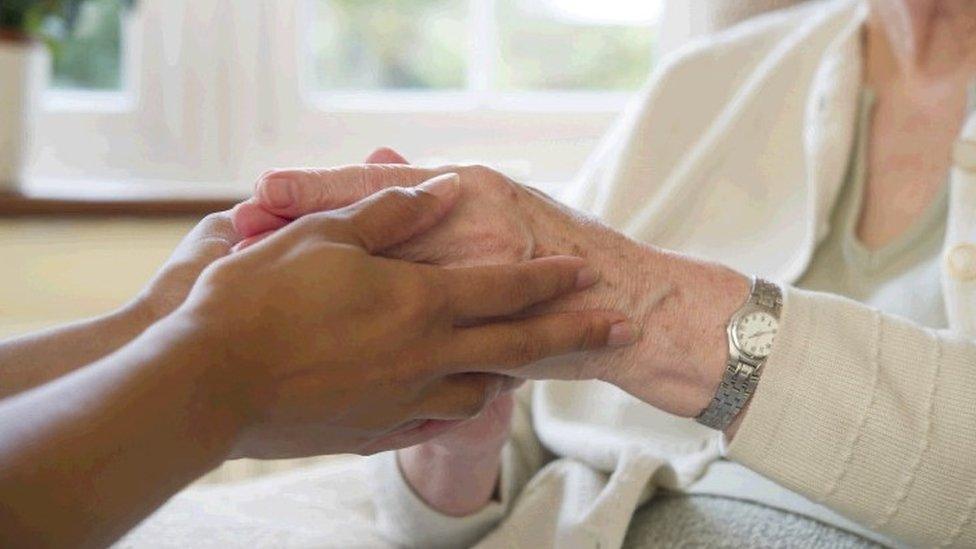
- Published2 November 2022
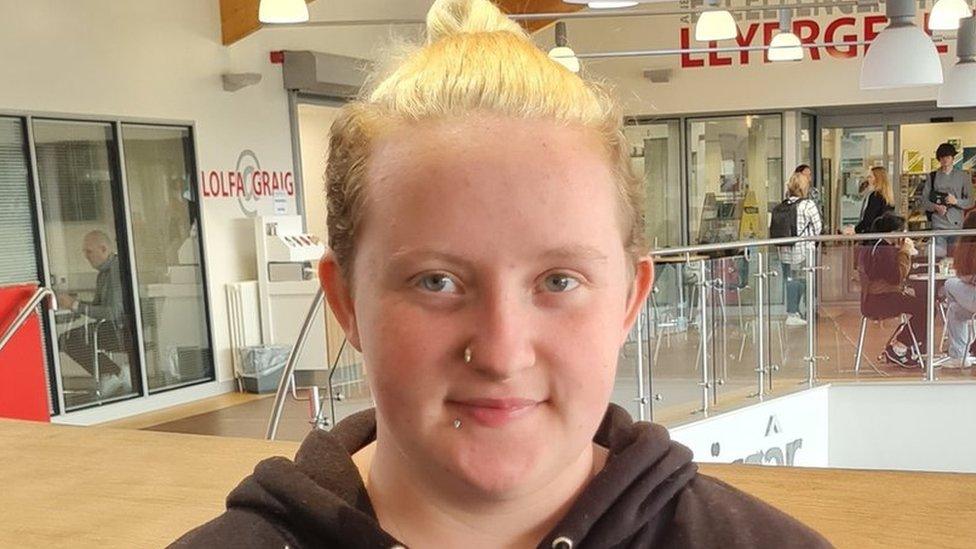
- Published21 November 2019
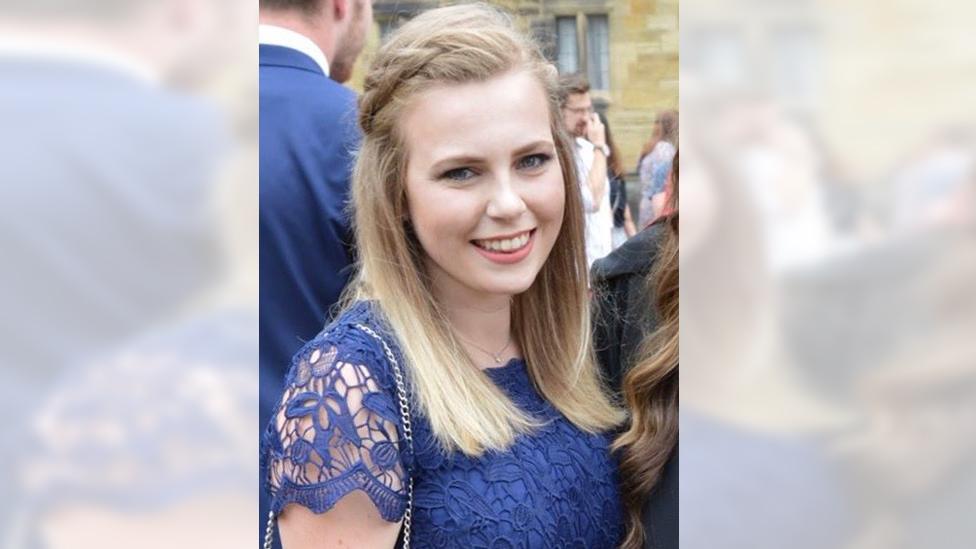
- Published2 July 2015
